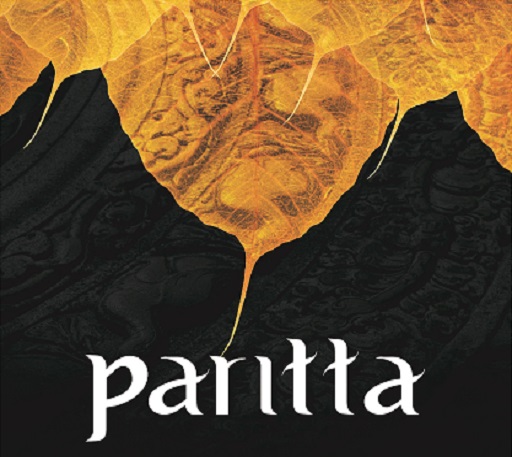No. 79.
KHARASSARA-JĀTAKA.
“He gave the robbers time.”–This story was told by the Master while at Jetavana, about a certain Minister. He, ’tis said, ingratiated himself with the king, and, after collecting the royal revenue in a border-village, privily arranged with a band of robbers that he would march the men off into the jungle, leaving the village for the rascals to plunder,–on condition that they gave him half the booty. Accordingly, at daybreak when the place was left unprotected, down came the robbers, who slew and ate the cattle, looted the village, and were off with their booty before he came back at evening with his followers. But it was a very short time before his knavery leaked out and came to the ears of the king. And the king sent for him, and, as his guilt was manifest, he was degraded and another headman put in his place. Then the king went to the Master at Jetavana and told him what had happened. “Sire,” said the Blessed One, “the man has only shewn the same disposition now which he shewed in bygone days.” Then at the king’s request he told this story of the past.
_____________________________
Once on a time when Brahmadatta was reigning in Benares, he appointed a certain Minister to be headman of a border-village; and every-thing came to pass as in the above case. Now in those days the Bodhisatta was making the round of the border-villages in the way of trade, [355] and had taken up his abode in that very village. And when the headman was marching his men back at evening with drums a-beating, he exclaimed, “This scoundrel, who privily egged on the robbers to loot the village, has waited till they had made off to the jungle again, and now back he comes with drums a-beating,–feigning a happy ignorance of anything wrong having happened.” And, so saying, he uttered this stanza:–
He gave the robbers time to drive and slay
The cattle, burn the houses, capture folk;
And then with drums a-beating, home he marched,
–A son no more, for such a son is dead 1.
In such wise did the Bodhisatta condemn the headman. Not long after, the villany was detected, and the rascal was punished by the king as his wickedness deserved.
_____________________________
p. 203
“This is not the first time, sire,” said the king, “that he has been of this disposition; he was just the same in bygone days also.” His lesson ended, the Master shewed the connexion and identified the Birth by saying, “The headman of to-day was also the headman of those days, and I myself the wise and good man who recited the stanza.”
Footnotes
202:1 The scholiast’s explanation is, that a son who is so lost to all decency and shame, ceases ipso facto to be a son, and that his mother is sonless even while her son is still alive.

![[PDF] The book of the Discipline – Vinayapiṭaka – The full 6 Volumes](https://en.namo84000.org/wp-content/uploads/2023/12/The-Book-of-the-Discipline-Vinaya-Pitaka.jpg)


![[En] Guide to Tipitaka](https://en.namo84000.org/wp-content/uploads/2021/10/Kinh-Phat-Quan-trong-2.jpg)